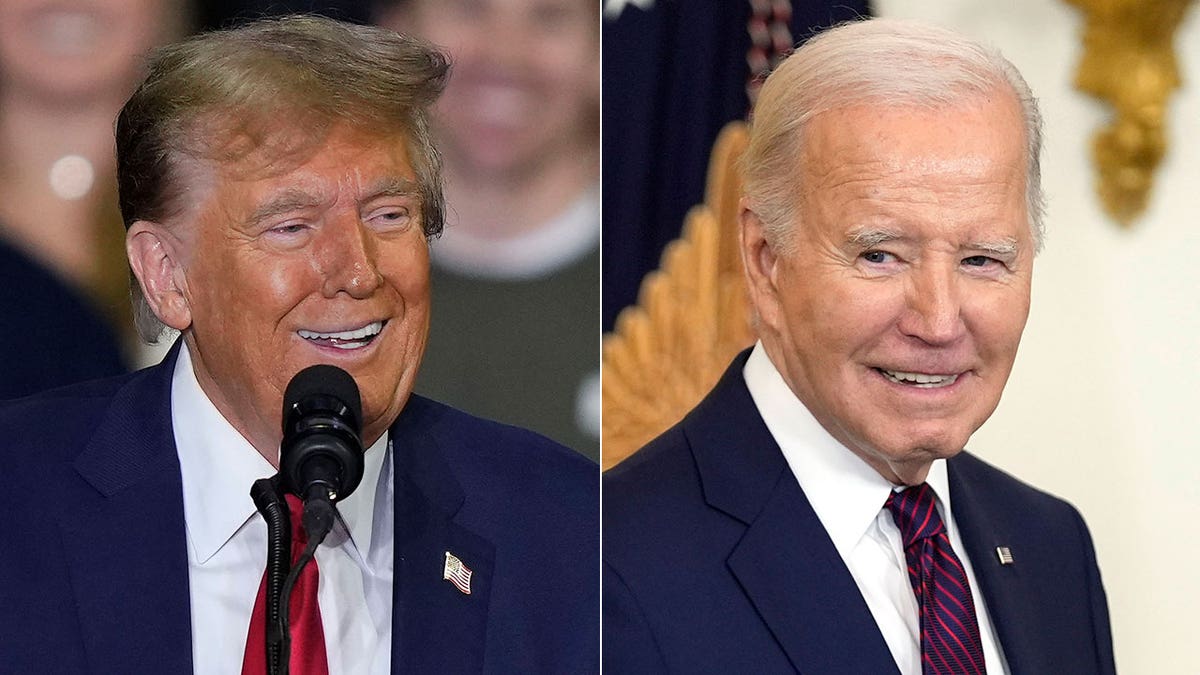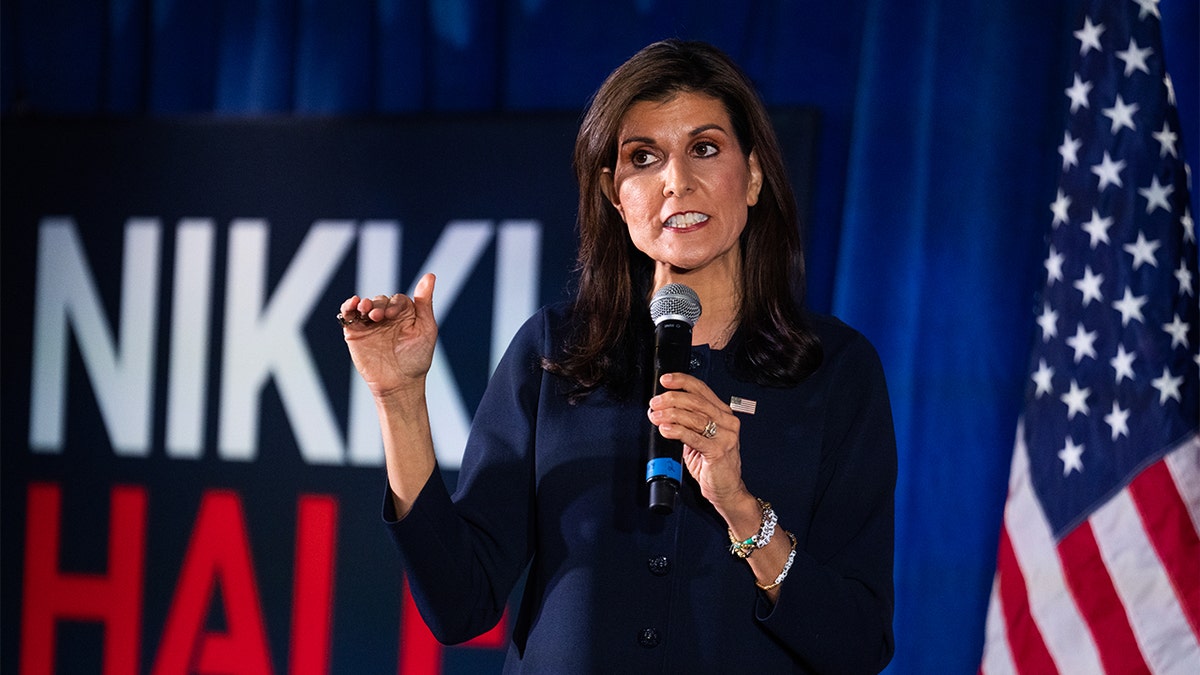Trump urges his supporters to not get complacent ahead of the 2024 election
Fox News national correspondent Bill Melugin has the latest on the first presidential rematch since 1956 on 'Special Report.'
With former President Donald Trump having secured enough delegates to win the GOP nomination, the party can rest confident in the knowledge that their nominee led them to victory in 2016 – and led them to outperform expectations in 2020. Indeed, while he narrowly lost the Electoral College and the White House, the GOP surprisingly gained House seats as well as only narrowly lost the Senate (after disappointing showings in runoffs in Georgia).
The most important thing for Republicans right now is to ensure unity as they likely head into the longest general election campaign in U.S. history.
One thing we learned in Trump’s rather lopsided victorious romp through the primaries (he only lost Vermont and the District of Columbia – neither of which will be fertile territory for the GOP in the fall) is how strongly he dominates the party. Three consecutive nominations for president. The last person to do that was President Franklin Delano Roosevelt.
At the same time, the semi-contested primaries, especially Iowa, New Hampshire and South Carolina, identified the two streams of the Republican primary electorate. The first is the so-called MAGA (Make America Great Again) movement, which Donald Trump essentially created – and remains dominant in the party. Then there are folks who don’t — at least not yet — consider themselves part of the movement.

Former President Donald Trump is facing President Joe Biden in an unusual repeat election that could be decided by how much non-MAGA Republicans vote for Trump. (AP)
The MAGA wing dominates the party – with roughly two-thirds support. It is solidly behind Trump. In Iowa (even with Florida Gov. Ron DeSantis on the ballot), Trump won 75% of their votes.
By New Hampshire and South Carolina, Trump was winning the support of close to nine in 10 MAGA Republicans. They clearly remain enthusiastically committed – and can be expected to turn out solidly in November.
But there remains a smaller (roughly one-third of Republicans) who are non-MAGA. They grew to be solidly behind former South Carolina Gov. Nikki Haley during the short primary season. While she got less than half of their support in Iowa, by New Hampshire and South Carolina she was winning three-fourths of the votes of Republicans who said they did not support the MAGA movement.
Our analysis of these voters showed that there were more moderate than MAGA voters and more committed to the Reagan-Bush issues: strongly supportive of NATO and aid to Ukraine, and more focused on economic issues. They tend to be non-evangelical, live in the suburbs and cities, and are more likely to hold college degrees.
Moreover, non-MAGA voters showed some skepticism towards the likely Trump nomination. In fact, a large number said they would not vote for Trump in November. Over half of non-MAGA Iowa Republican caucus participants said they would not vote for Trump, In New Hampshire, the number was 65%, and in South Carolina, 57%.
And note: We’re omitting the Independents and Democrats, who were allowed to participate in those states – many of whom likely were only coming out in order to register their opposition to Trump. (Many, in fact, said they wouldn’t vote for Haley in the fall, even though they voted for Haley in the winter.)
Of course, that’s what they’re saying at the end of an intra-party statewide contest. Typically, one sees candidate partisans claiming they’ll not support their intra-party rival, only to "come home" in November and vote for their party’s nominee.
Indeed, in the six Fox News battleground state polls so far this year, we’ve seen almost all – about nine in 10 – Republicans say they’ll vote for Trump over President Joe Biden.
The MAGA wing dominates the party – with roughly two-thirds support. It is solidly behind Trump. In Iowa (even with Florida Gov. Ron DeSantis on the ballot), Trump won 75% of their votes.
But, but, but. In the most recent national poll, when we asked about voting in a five-way contest (choosing among Trump, Biden, Democrat-turned Independent presidential candidate Robert F. Kennedy Jr., Green Party candidate Jill Stein, and progressive independent Cornell West), almost half of non-MAGA Republicans said they would not vote for Trump – that’s pretty close to what we were seeing in the three competitive caucuses and primaries.
We’re clearly not the only ones who’ve seen this data. A large part of the Biden strategy seems aimed at trying to win over non-MAGA Republicans – maybe not to vote for Biden, but at least to stay home.
The Democrats have been trying to exploit possible GOP/Trump division since 2016. Hillary Clinton botched it big time, when she said "half" of the Trump supporters belonged in a "basket of deplorables." She explicitly said "half." But it didn’t matter as the other half decided she was referring to them, too – and she helped unify the GOP behind a candidate many were skeptical of.
Now think back on Biden’s recent over-the-top rally speech to his Democratic base – otherwise known as the State of the Union address.

Who supporters of former South Carolina Gov. Nikki Haley back in 2024 is a key factor in the race. (Tom Williams/CQ-Roll Call, Inc via Getty Images)
Yes, the fiery shouting was aimed at calming his base down over fears about his age. But think about the first president he quoted in the speech. It was Ronald Reagan. And it was from a speech that cemented Reagan in place as the ultimate cold warrior.
A Democratic president quoting Reagan in a speech aimed at Democratic progressives makes about as much sense as a Republican president quoting former President Barack Obama in a speech aimed at the base of the Republican Party. Presidents don’t accidentally quote other presidents in the text of a speech. Every word is planned by a committee of political strategists aiming to gain ground.
And Biden has been pushing for a while at the same goal. Note his ongoing rhetoric about "Republican MAGA extremists." Many Republican politicians – thinking that this is another Democratic elitist insult that will backfire – have responded by saying "I’m 100% MAGA." But the data from the primaries suggest it targets an actual split in the Republican Party. A split over funding for Ukraine, views of NATO and the iconic status of Ronald Reagan.
CLICK HERE FOR MORE FOX NEWS OPINION
The next few months will tell whether that split is merely an intra-family difference of opinion or a true intra-party divide.
Remember that divisions don’t need to be dramatic to be decisive. In 2020, in all of the key battleground states (Arizona, Georgia, Michigan, Pennsylvania and Wisconsin), more people voted for the Republican candidates for Congress than for the Democratic ones.
Trump lost each of these states because he didn’t get the votes of those who voted for the GOP congressional candidate, but also for Biden. And according to our 2020 Fox News Voter Analysis, over half of those ticket splitters were, yes, Republicans.
CLICK HERE TO GET THE FOX NEWS APP
It's why Trump needs to figure out how to bring home the non-MAGA to his side in the general election campaign against Biden.
It's a core political axiom: divided parties lose elections.
CLICK HERE TO READ MORE FROM ARNON MISHKIN












































